Employee Experience (EX) is top of mind for most HR professionals today. According to a recent study of over 1,200 HR leaders across Australia, Canada, Germany, the UK, and US, 91% of practitioners say improving EX is a significant or critical priority. A full 95% claim that the priority their organizations put on EX has increased or significantly increased over the last 3 years with plans to invest more in their people and EX technology over the next year. That’s great news.
Despite the progress over the years, HR leaders still see hurdles and opportunities. Our study of HR leaders highlights their current objectives, the organizational tailwinds supporting their EX management efforts, and the headwinds that are slowing progress. What’s interesting is that many of the classic challenges (lack of funding, lack of executive support) don’t appear to be the biggest hurdles facing EX management today. The bigger opportunity, it seems, lies in developing the right skills and business leaders involving HR when turning insights into meaningful action.
What HR Professionals Are Focused On
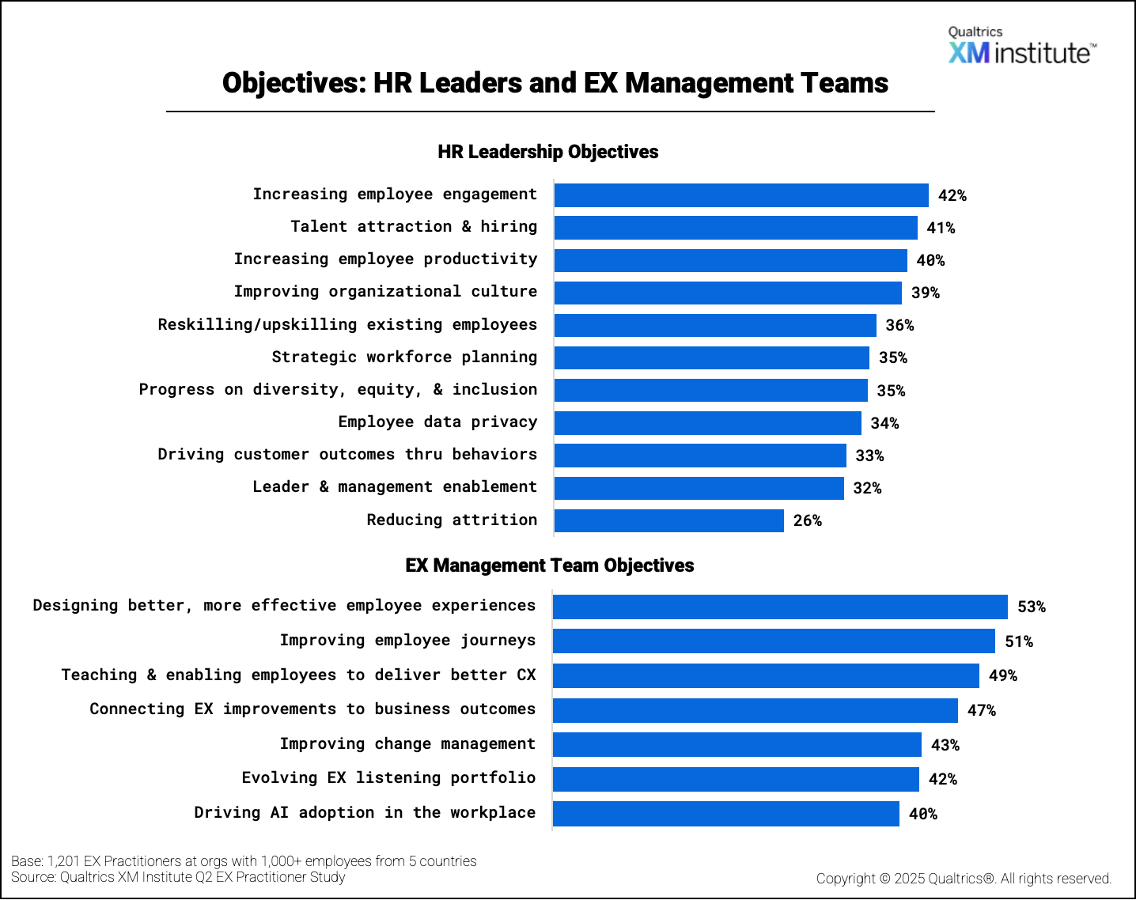
EX Management programs help organizations solve a host of business challenges. Top HR objectives over the next 12 months include increasing employee engagement and productivity to talent attraction and hiring. Interestingly, reducing attrition - a historically ubiquitous priority - was the least endorsed objective.
When asked about EX Management specifically, designing better, more effective employee experiences topped the list, followed closely by improving employee journeys and enabling employees to deliver better customer experiences.
What’s Going Well
Across our global research and client work, it’s clear that organizations are getting better at listening to employees. It’s also clear that a majority of mid-sized to large organizations staff teams with dedicated Employee Experience responsibilities - such as employee listening, analytics and insights, and EX management strategy.
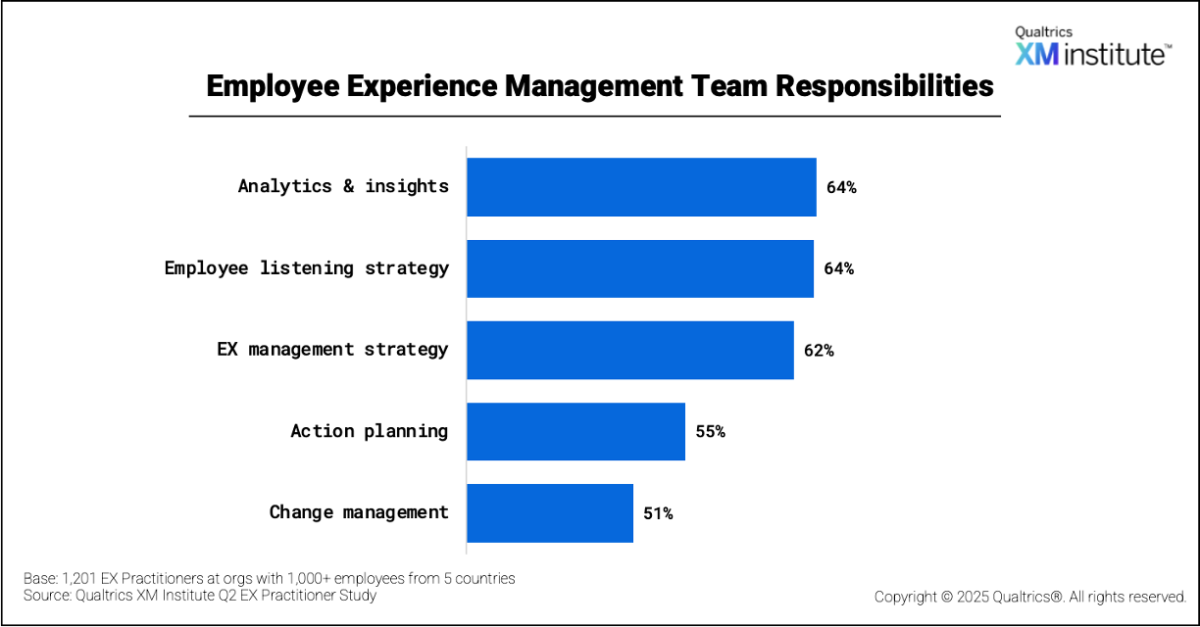
When asked about significant obstacles, neither lack of support nor lack of funding appear to be widespread issues. These are historically some of the most challenging obstacles to overcome and this is an important signal that support for EX Management efforts is increasing among senior decision makers and budget holders.
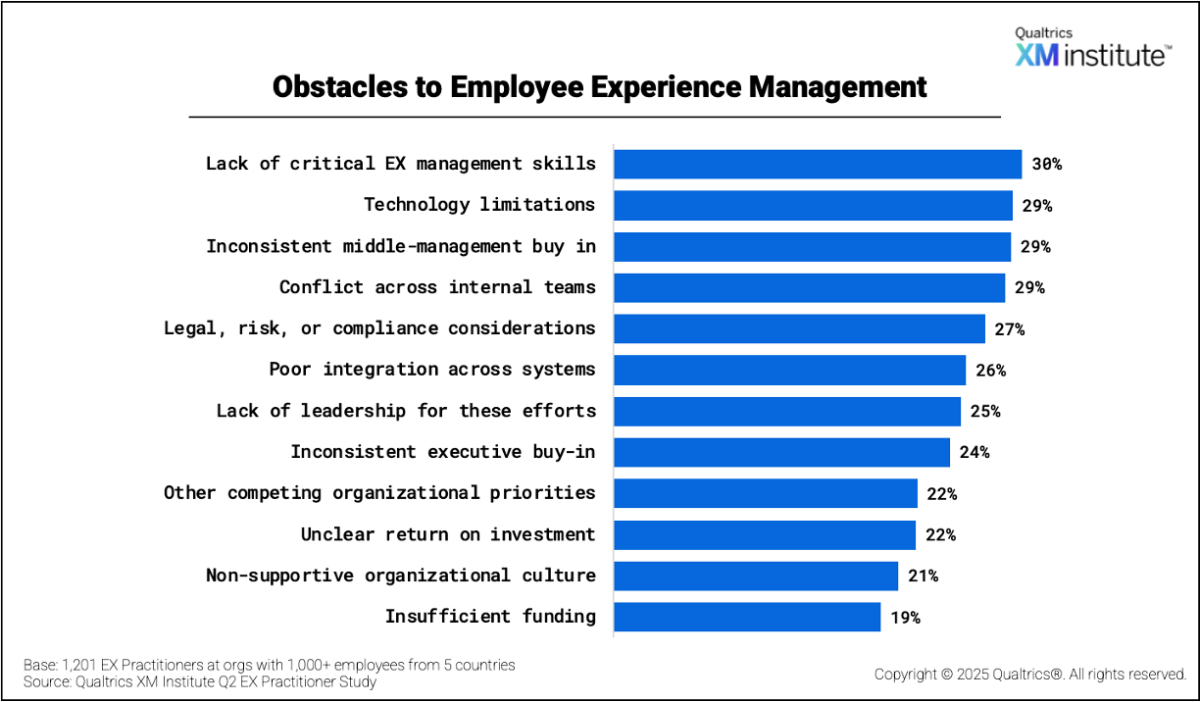
In fact, 90% of EX professionals stated that their CEOs strongly or very strongly champion EX, a clear signal that efforts to measure and improve employees’ experiences are championed at the very top of many organizations.
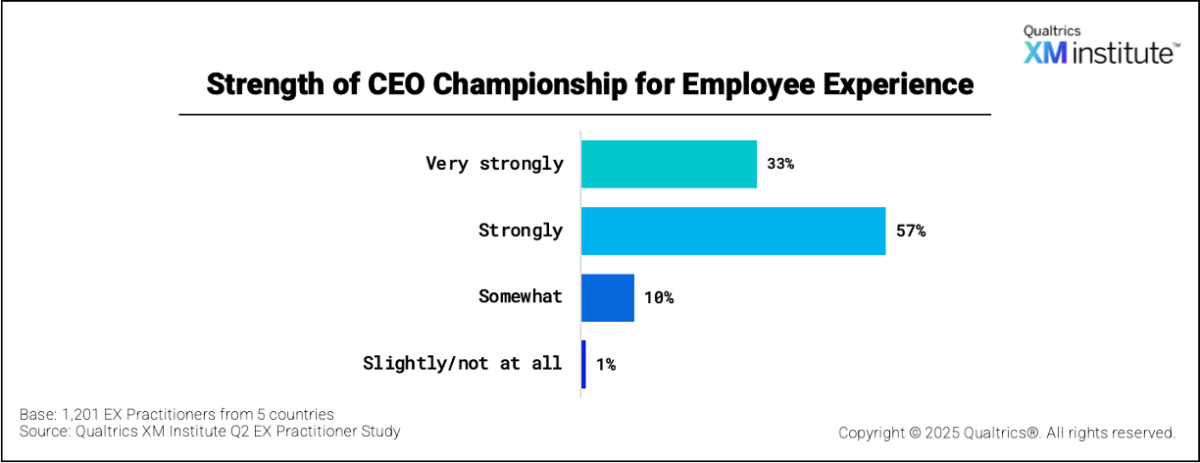
And an overwhelming majority of HR pros (85%) rate their organizations as either very effective or extremely effective at identifying aspects of EX that impact the organization’s Customer Experience - a clear acknowledgment of their inextricable link.
What Needs Improvement
Although a majority of EX teams own EX management and listening strategies, their ownership falls short at the moment that matters most: turning insight into action. Now, lack of ownership isn’t inherently bad, as many organizations wisely democratize action to leaders across the business. But interestingly, HR professionals who report below-average business performance of their company, are substantially less likely to own Action Planning and Change Management. In other words, there may be value in EX teams shepherding the organization through these essential activities.
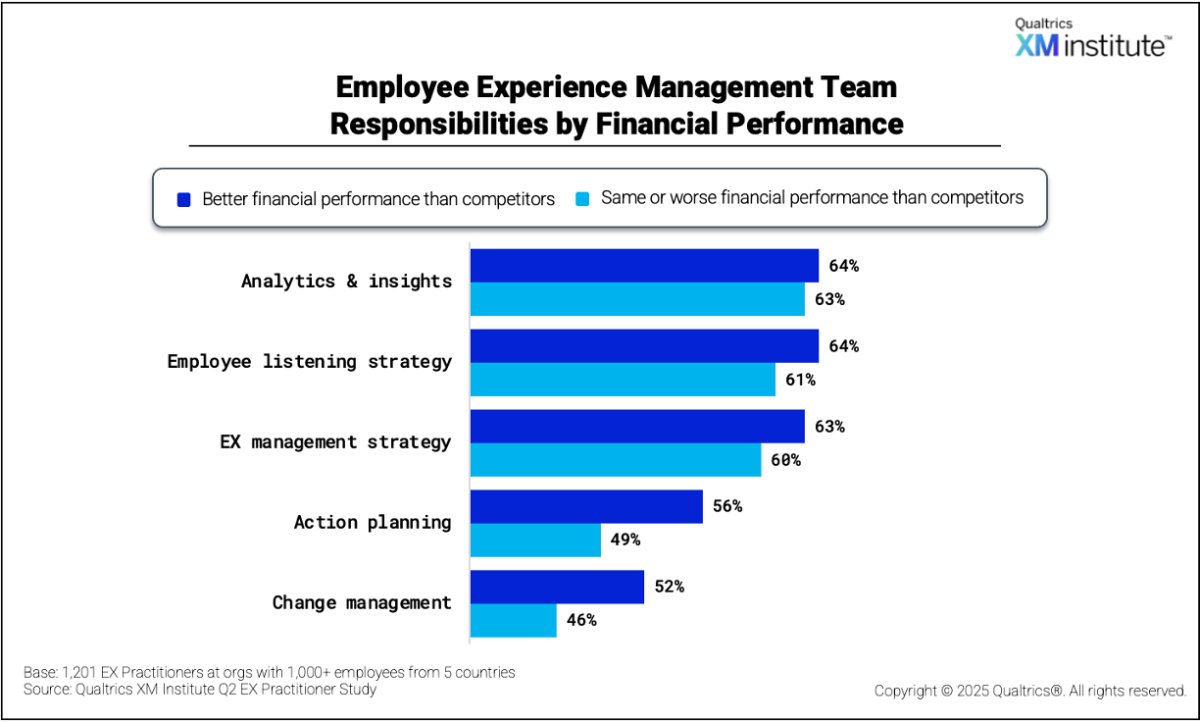
HR pros acknowledge that EX-focused actions aren’t always easy to quantify. Among the obstacles, they cite lack of resources for analysis (52%) and lack of well-defined metrics (49%) as the most prominent.
Among stated challenges, nearly one-third of practitioners say a lack of critical EX skills is a significant obstacle. Similarly, when asked about the specific employee experiences in most need for improvement, formal training and development topped the list (34%). Both of these findings highlight HR’s acknowledgement of skills and internal development gaps - likely stemming from accelerating technologies like AI, which they point to as the greatest source of uncertainty their organizations currently face.
Three Tips to Progress EX Management
HR professionals are the stewards of their organization’s most prized and fundamental building block: its people. EX Management helps organizations nurture the most critical experiences and give employees a voice. But as the world continues to evolve, so must EX professionals and their efforts. Here are three practical tips to help HR and EX teams up their game for the future:
- Secure and showcase executive sponsorship. Every seasoned HR professional knows how critical executive buy in is. Creative efforts require funding and funding requires support. And interestingly, according to this study, a visible CEO champion increases the chance that EX teams are empowered to own change management. HR leaders can bolster support for their programs by explaining the value of EX within the context of current business challenges.
- Invest in change-management and action planning. Upskill EX practitioners and frontline managers in practical change methods (project planning, stakeholder mapping, adoption tactics) to close the gap between insight and impact. Although it’s useful (even essential) to scale change management and action planning to business leaders, there is value in leaning on HR to guide these efforts. As experts in people, HR professionals should shepherd their organizations through these essential activities, especially during times of change.
- Invest in “human skills” at all levels. AI and intelligent technologies will push organizations to redefine skills and jobs. But there are some uniquely human skills that are unlikely to go out of style anytime soon. Skills like active listening, demonstrating empathy, and storytelling with data are always going to be important as long as people work with and purchase from other people. Moreover, these skillsets are essential throughout change management and should be scaled across every level of the organization - from HR to the front-line to the C-suite.
Ultimately, listening to employees is necessary — but not sufficient. HR leaders should push EX programs beyond analytics into action: secure executive backing, build change-management capability, and equip managers to execute. When HR closes that loop, EX becomes a strategic advantage, not just a nice-to-have.



